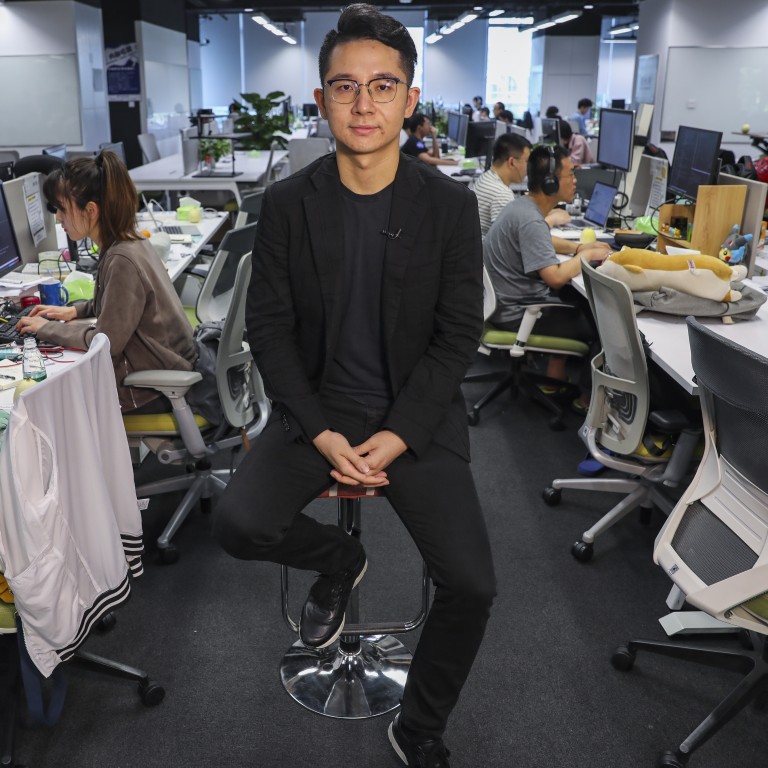
China AI start-up Megvii pushes ahead with IPO despite US blacklisting
- Yin Qi, Megvii’s co-founder and chief executive, said in an internal letter that it would ‘fight’ the US trade ban
Chinese artificial intelligence (AI) start-up Megvii Technology is pressing ahead with plans for an initial public offering in Hong Kong and targeting a listing hearing in early November, despite getting blacklisted by the Trump administration, according to people familiar with the matter.
While Megvii has lost access to American components – including chips from Nvidia Corp that are key to its business – it has not changed its goal of going public, said the people, asking not to be named because the matter is private.
The company is appealing the US decision to include it on the Commerce Department’s Entity List, which prohibits American companies from providing crucial supplies like semiconductors, one person said.
US President Donald Trump’s administration blacklisted eight Chinese tech companies this month, accusing them of being implicated in human rights violations against Muslim minorities in the country’s far-western region of Xinjiang. The move is a setback for Megvii and the others named, and more broadly for the Chinese government, which has pledged to develop the country into one of the leaders in AI.
Megvii has said that the blacklisting is “unsubstantiated” and that the company complies with all laws and regulations in regions it has operations. Yin Qi, the company’s co-founder and chief executive, said in an internal letter that it would “fight” the US designation, according to the South China Morning Post.
The company may need to raise cash. Megvii lost 3.4 billion yuan (US$480 million) in 2018 after losing 759 million yuan the year before, partly because of changes in the value of preferred shares. It listed 1.4 billion yuan in cash, equivalents and bank balances at the end of June, while it used net cash of 674 million yuan for operations in the first six months of the year. Its term deposits, which refers to short-term bank deposits with maturities of three to twelve months, stood at 3.3 billion yuan as of June.
But it is not clear how receptive investors would be to buying stock in a company that is in the Trump administration’s crosshairs. Megvii’s IPO filing already included about 40 pages of risk factors, ranging from competitive threats to the dangers of AI. One entry cited the possibility of the US imposing trade restrictions on the company.
Despite putting in place compliance programmes and contingency plans, “we cannot assure you that if we were included as a target for economic and trade restrictions, such restrictions, particularly when carried out on a prolonged basis, would not have material and adverse impacts on our business, reputation and results of operations”, the filing said.
Megvii CEO says US ban will hit its supply of servers and could disturb IPO but it is ‘ready for the fight’
Goldman Sachs, one of three underwriters on the IPO, said last week that it was evaluating its involvement. Megvii is also working with JPMorgan Chase & Co and Citigroup.
Goldman declined to comment further beyond its statement last week. Megvii, JPMorgan, Citi declined to comment.
The blacklist does not put any restraints on who can purchase Megvii’s products. Any company that wants to sell to Megvii or any other company on the blacklist it would need a special licence.
Megvii’s IPO was supposed to have been the Chinese AI industry’s unofficial debut on the global stage. The company had already faced tumult because of rising violence in Hong Kong, where protesters have railed against Beijing’s control over the local government. Adding to the turmoil, the Trump administration is moving ahead with discussions about restricting government pension funds from investing in China, which could deal a blow to companies like Megvii that are seeking outside capital.
Megvii counts Qiming Venture Partners and AI guru Lee Kai-fu’s Sinovation Ventures as backers.
For more insights into China tech, sign up for our tech newsletters, subscribe to our Inside China Tech podcast, and download the comprehensive 2019 China Internet Report. Also roam China Tech City, an award-winning interactive digital map at our sister site Abacus.

